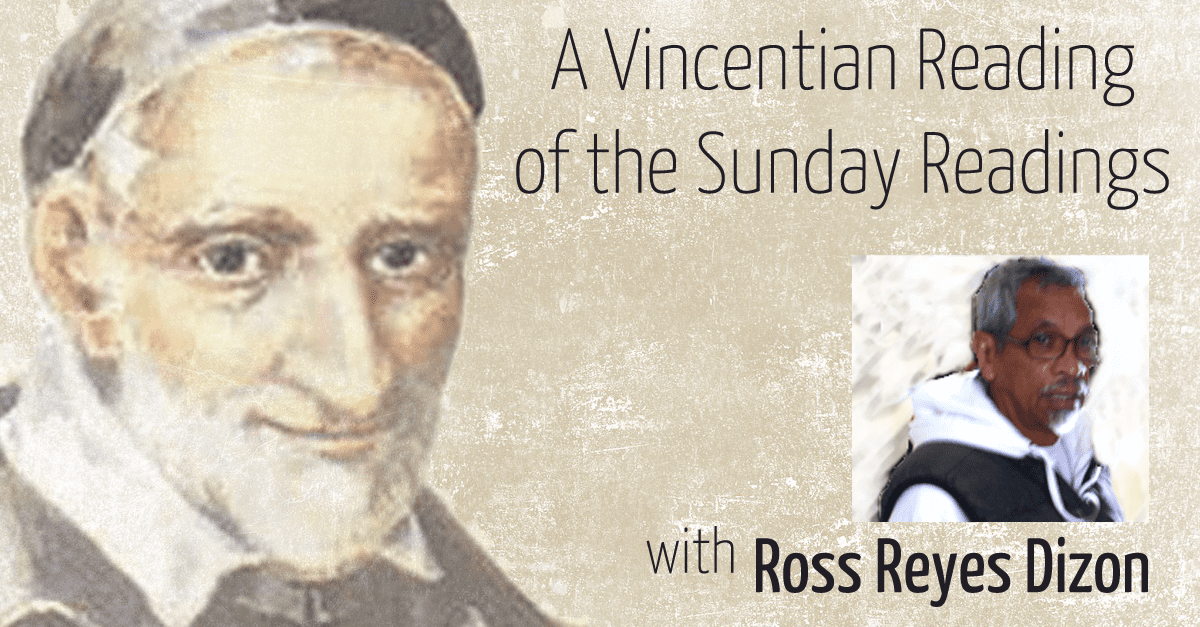Jesus embodies the one who created us, men and women, in his image, after his likeness. Rightly does he tell us, then, that to love and hear God is to love and hear the neighbor.
A scribe asks Jesus, “Which is the first of all the commandments?” And he answers that it is what the prayer Shema says, which begins, “Hear, O Israel!”
So, Jesus repeats the prayer. Then, he adds, “The second is this: ‘You shall love your neighbor as yourself’” (Lv 19, 18). The scribes gets more than what he wants. In this way, Jesus highlights that the second commandment, which is like the first, is also important.
‘Like’ means, of course, that the first and the second are not the same. But ‘likeness’ does not only tell apart one from the other. It also suggests that we cannot set the second aside. Just as we cannot pass over those who bear the image of God and are like him.
For Jesus, that is to say, one cannot separate love of God and love of neighbor. To love and hear our Father also means to love and hear our neighbor.
And Jesus does what he says. That is why he stands out due to his reverence for God and his love for the neighbor (SV.EN VI:413).
In the first place, Jesus is an observant Jew. And since he cares about true worship, he throws out of the temple those who are all about business. For the same reason, he decries those who honor God only with their lips. And those, too, who disguise, before widows, their greed as worship. He is, besides, against those who, for the sake of the Sabbath, stand idly by when they can save life.
God does hear the cries of the poor; we are to do the same.
So, in the second place, Jesus wills the good of others. And how does he love? The gospels count for us the ways. Mt 4, 23 sums it up (see also 9, 39; Mc 1, 39; Lc 4, 15. 44). He goes about towns and villages to teach in synagogues and proclaim the Good News of the kingdom. Also, he cures the diseases and illnesses among the people.
Besides, he loves us so much that, following God’s providence, he offers himself to him for us. And since this is key, we can never repeat it enough.
Yes, that is how Jesus loves. In inventive ways also, of course (SV.EN XI:131). And he wants his own to love so too. But not only the Christians, but also those who are not Christians. For, at the end, he says to the scribe, “You are not far from the kingdom of God.” He lets us know in this way that to love as he is not the Christians’ alone.
All God’s children, yes, can worship and hear God in places of worship. In Jerusalem, in Mount Gerizim or in one of the seven hills of Rome. And if we worship him in Spirit and truth, we will discover that such worship commits us to the neighbor, to the poor in particular (CCC 1397). No doubt, there is such a thing as “to leave God for God.” And to worship Christ in the poor (SV.EN XI:26).
Lord, make our love for you grow to a perfect love, so that we love and hear our neighbor too.
31 October 2021
31st Sunday in O.T. (B)
Dt 6 2-6; Heb 7, 2-28; Mk 12, 28b-34








0 Comments